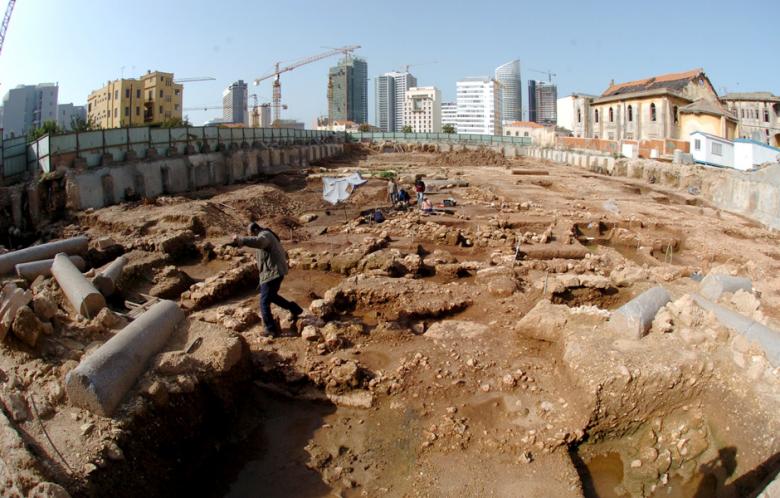UPDATE 2: March 20 2012
Al Akhbar Newspaper picks up the call to action story - click here
UPDATE 1: March 20 2012
March for Beirut's Phoenician Port and Roman Hippodrome
facebook event here - click to join
24th of March - Saturday 3:00pm until 4:00pm
Minat Al Hosn, behind Monroe Hotel, site of the Phoenician Port
Gathering point: Minat Al Hosn, behind Hotel Monroe.
The march aims for the following:
-Denouncing the reluctance of the government and lax approach towards launching the necessary
projects to valorize the many archeological and historical sites in Beirut.
-To protect the Phoenician port of Beirut, on plot 1398
-The reversal of the ministry of culture's decision to allow the 'integration' of the Beirut Roman
Hippodrome In Wadi Abou Jmil, into a development project, especially that the Hippodrome is on
the list of culturally relevant monuments in Beirut.
Let's save the few remaining archeological sites we still have left. they are the last remaining historical link between our past and us.
Let's safeguard this cultural heirloom for our children, and our children's children!
History, Culture and Identity over Politics: Thank you for NOT bringing along any visual or slogan related to any political, religious or commercial affiliation.
Politics have no place in our meeting. This is a gathering of Lebanese, paying tribute to their rich ancestry and reconnecting with it.
---
 Solidere, and the company that owns the property, Beirut Trade, did not recognize the minister of culture�s decision and continued to procrastinate over approving it. (Photo: Al-Akhbar - Archive)
Solidere, and the company that owns the property, Beirut Trade, did not recognize the minister of culture�s decision and continued to procrastinate over approving it. (Photo: Al-Akhbar - Archive)
original article Al-Akhbar
By: Bassam Alkantar
Published Tuesday, March 13, 2012
Despite an earlier preservation order, another of Lebanon�s archaeological treasures is to be �integrated� into an upmarket commercial development.
Shortly before Saudi monarch Abdullah bin Abdel Aziz�s visit to Lebanon in July 2010, former Lebanese Prime Minister Saad Hariri stood on the balcony of his downtown Beirut residence alongside his then Minister of Culture Salim Warde.
Hariri turned to Warde and told him: �I am supposed to receive his majesty King Abdallah on this balcony.� He then pointed across to property number 1370 in the Wadi Abu Jamil district, and asked the minister to have the department of antiquities clean it.
Weeds and trees had sprung up in record time and covered the site: Beirut�s Roman-era hippodrome, the second to be discovered in Lebanon after the Tyre Hippodrome. Lebanon�s hippodromes are two of the five known to be in the Levant � after those in Caesarea in Palestine, Jerash in Jordan, and Bosra in Syria.
Beirut�s hippodrome is considered the grandest of them all. Its amphitheaters are several meters high and its race track is more than 90 meters long.
The cleaning process around this structure was not without obstacles. The culture ministry required permits from the prime minister�s office, which referred it to Solidere, the Hariri-founded company for the reconstruction of Beirut. But Solidere had apparently denied staff from the ministry�s directorate of antiquities access to the site since it had been excavated � as it has done with all archaeological finds on its real estate.